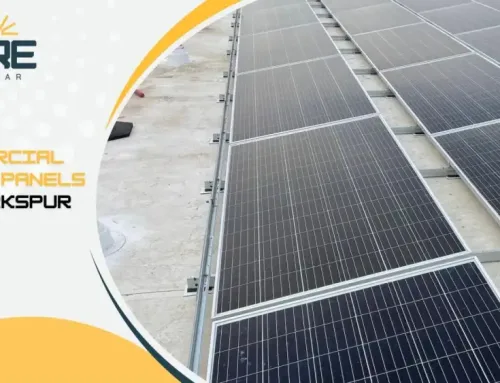Switching to solar energy is no longer just a trend—it’s a smart business decision. In a place like Denver, where sunshine is abundant and utility costs can be unpredictable, commercial solar offers long-term savings, increased energy independence, and a meaningful reduction in carbon footprint. But as a business owner, it’s natural to ask: which type of solar energy system is the right one for your operations? From rooftop systems to carport installations, from grid-tied to hybrid setups, there’s no one-size-fits-all solution. Your ideal system depends on your energy consumption, facility layout, budget, and long-term goals.
That’s why making an informed decision is so important. It’s not just about finding solar panels—it’s about building the right solar strategy. And with a growing number of providers and technologies available, having expert guidance is crucial. In this blog, we’ll break down the primary types of commercial solar systems, review what to consider when making a choice, and help you identify the commercial solar path that makes the most sense for your Denver business. Whether you run a small retail shop or a large manufacturing facility, this guide will offer the clarity you need to move forward with confidence.
Understanding Your Business’s Energy Requirements
Before partnering with a commercial solar panel installation company Denver and deciding on a solar solution, you need to know what you’re working with.
Start With an Energy Audit
Conducting a professional energy audit or analyzing your utility bills over the last 12–24 months can help identify patterns. When is your peak energy usage? Do you operate on nights and weekends, or are you primarily open during the day? Do you rely heavily on machinery, refrigeration, or HVAC?
The answers to these questions will inform what size and type of system you need, as well as whether energy storage (i.e., batteries) would benefit your setup.
Assess Your Physical Property
- Roof space and structural integrity: Do you have ample flat or south-facing roof area? Is the structure strong enough to support solar panels?
- Land or parking availability: Ground-mounted and solar carport systems can be excellent solutions if rooftop installation isn’t feasible.
- Shading and surroundings: Nearby buildings, trees, or even HVAC equipment can affect how much sunlight your panels will receive.
Types of Commercial Solar Systems
Now that you understand your needs, it’s time to evaluate the different solar system options available for Denver businesses.
Grid-Tied Solar Systems
This is the most common and cost-effective type of commercial solar setup.
- How It Works: Solar panels generate electricity during the day and feed excess energy back to the grid. When solar production is low (such as at night), your business draws power from the utility grid.
- Benefits: Low upfront costs (especially when incentives are applied), no need for expensive batteries, and potential credits via net metering.
- Ideal For: Businesses with stable energy usage during daylight hours and access to a reliable utility grid.
Off-Grid Solar Systems
These systems are completely independent of the power grid.
- How It Works: Your solar panels charge a battery bank, which stores energy for use when solar generation drops. You’re entirely self-sufficient.
- Benefits: Total energy independence and protection from outages or rising electricity rates.
- Drawbacks: Higher costs due to the need for large-scale battery storage and system redundancies.
- Ideal For: Remote facilities, agricultural operations, or businesses seeking total energy autonomy.
Hybrid Solar Systems
A blend of both grid-tied and off-grid features.
- How It Works: Solar panels are connected to both a battery system and the utility grid. The batteries store excess energy for later use, but your system can still fall back on the grid when necessary.
- Benefits: Energy resilience, backup power during outages, and the ability to avoid peak utility rates.
- Ideal For: Businesses with fluctuating energy demands, critical operations that can’t afford downtime, or those seeking a balance of security and savings.
Evaluating the Efficiency of the Solar Panels
Efficiency is about more than just panel output—it’s about how well the system converts sunlight into usable electricity over time and under Denver-specific conditions.
- The efficiency of commercial solar panels in Denver is significantly boosted by the region’s high elevation, which results in stronger sunlight (more solar irradiance).
- Cooler ambient temperatures also work in your favor—solar panels tend to perform better in cooler climates because excessive heat can reduce their efficiency.
- Snow may temporarily cover panels in the winter, but most systems are designed to shed snow quickly, and net annual production is typically excellent.
Choosing high-efficiency panels, proper orientation, and working with a skilled installer can optimize the efficiency of commercial solar panels in Denver for the long term.
Choosing the Right Commercial Solar Panel Installation Company Denver
Why Your Installer Matters
A system is only as good as the company that designs and installs it. And when it comes to something as technical—and financially impactful—as commercial solar, experience and reputation are everything.
- A commercial solar panel installation company Denver should not only be NABCEP-certified (North American Board of Certified Energy Practitioners) but should also have a strong portfolio of successful installations across industries.
- Look for transparency in pricing, long-term warranties, and ongoing system monitoring.
- Communication and customer service also matter. A reputable company will answer your questions, help you apply for rebates, and walk you through every phase of the process.
What to Ask Potential Installers
- How long have you been installing commercial solar in Denver?
- Do you handle all permitting and inspection paperwork?
- What is your average project timeline?
- What type of maintenance or support do you offer post-installation?
Financial Considerations and Incentives
Breaking Down the Costs
Commercial solar is a long-term investment. While the upfront price can seem steep, the financial returns typically begin within the first few years.
- Cost Factors: System size, panel quality, mounting method, battery inclusion, and electrical upgrades all play a role in total project cost.
- Operational Savings: Many businesses see 50–75% reductions in their electricity bills after installing solar.
Available Incentives
- Federal Investment Tax Credit (ITC): Currently allows businesses to deduct 30% of the system cost from federal taxes.
- MACRS (Modified Accelerated Cost Recovery System): Offers accelerated depreciation, allowing you to write off system costs more quickly.
- State and Local Rebates: Programs vary by utility and time, but your commercial solar panel installation company Denver can help identify and apply for them.
Your Business’s Smart Energy Future Starts With ARE Solar
Ready to take your business into the future with solar? Partnering with the right provider makes all the difference, and ARE Solar is Denver’s trusted name in commercial solar solutions. With a track record of high-performance installations, ARE Solar combines technical expertise with a deep understanding of local incentives, energy rates, and permitting processes.
Our team takes the time to evaluate your business’s needs, identify the most cost-effective system type, and design a solar array that delivers maximum performance and savings. Whatever solar energy solution your business is leaning towards, ARE Solar has the tools, technology, and local knowledge to bring your vision to life. We also provide full-service support from engineering to installation to post-installation monitoring and maintenance so you’re never left in the dark. The benefits of solar are long-lasting, and so is our commitment to your success.
Contact us today and take the first step toward a brighter, more efficient, and more profitable energy future.



















